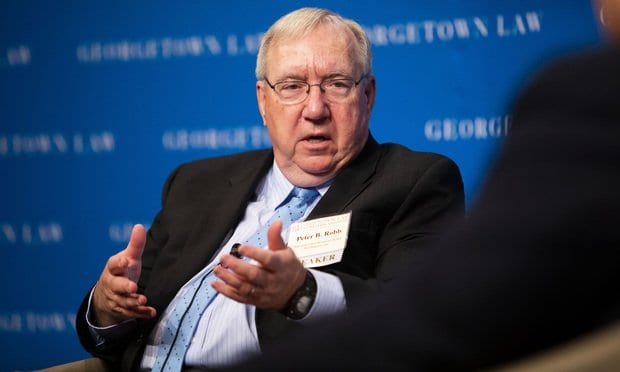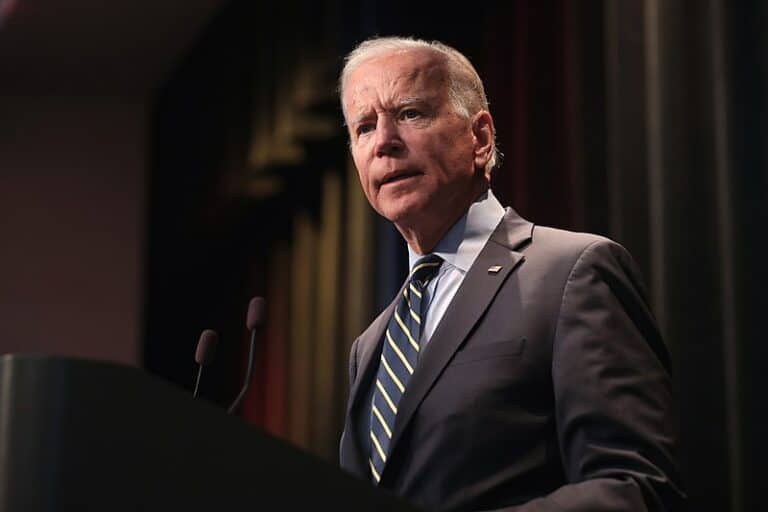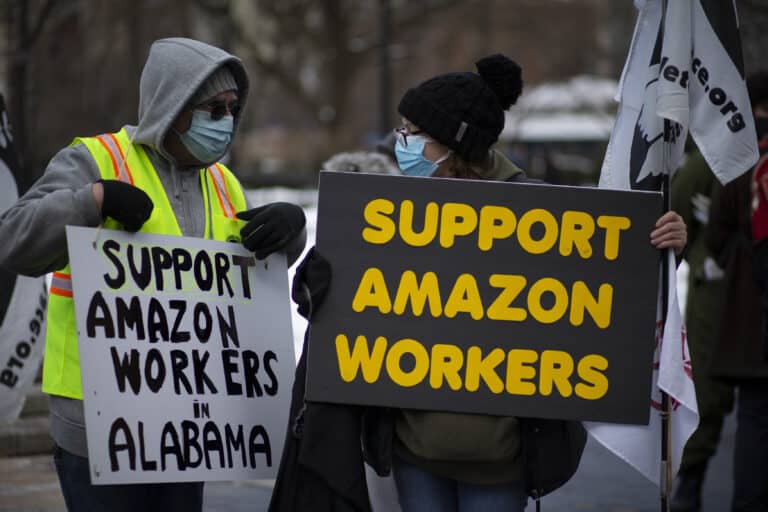
Fred Wang is a student at Harvard Law School.
Hours into his administration, President Biden fired the National Labor Relation Board’s (NLRB) Trump-era general counsel (GC), Peter Robb. Upon Robb’s termination, many Republicans clamored that Biden’s move was inappropriate, divisive, even illegal. Many observers—including myself—were skeptical of that latter argument. But over the past few months, corporations in pending litigation with the NLRB have tested it by filing challenges in ongoing cases.
Last week, a New Jersey federal judge shot it down. The case was Goonan v. Amerinox Processing, Inc., which involved an NLRB injunction sought against the metal processing company Amerinox to reinstate workers that it allegedly unlawfully fired. Amerinox argued that the NLRB’s acting GC lacked the authority to prosecute the matter because his predecessor, former GC Robb, was improperly removed from his office.
The district court disagreed. Its analysis of the removal issue was brief and focused exclusively on the “plain language” of the National Labor Relations Act (NLRA). On the district court’s read, the relevant statutory text (Sections 3(a) and 3(d) of the NLRA) distinguishes members of the Board from the General Counsel. Section 3(a), which governs the former, provides that the President may remove any member of the Board “for neglect of duty or malfeasance in office, but for no other cause.” That language, however, is conspicuously absent in Section 3(d), which describes the office of the GC. Indeed, Section 3(d) contains no language detailing the conditions under which the President may remove the GC. In other words, although Congress restricted the President’s ability to remove members of the Board at will, it “did not include the same provision for the General Counsel.” Accordingly, the district court concluded that the President could discharge the GC “without the process required for Board members.”
As others have noted, the particular facts of Goonan make it an unlikely case for definitively resolving the question of whether Robb’s firing was illegal. After all, as the district court later noted, the challenged injunction was brought by an NLRB regional director on behalf of the Board, not the GC. That being said, the decision affirms what many suspected in January: The legal argument against Robb’s firing is weak. And if the high Court’s most recent treatment of the President’s removal authority is any indication, it is unlikely that the Supreme Court—should the question be presented before it—will think otherwise.










Daily News & Commentary
Start your day with our roundup of the latest labor developments. See all
July 9
In Today’s News and Commentary, the Supreme Court green-lights mass firings of federal workers, the Agricultural Secretary suggests Medicaid recipients can replace deported farm workers, and DHS ends Temporary Protected Status for Hondurans and Nicaraguans. In an 8-1 emergency docket decision released yesterday afternoon, the Supreme Court lifted an injunction by U.S. District Judge Susan […]
July 8
In today’s news and commentary, Apple wins at the Fifth Circuit against the NLRB, Florida enacts a noncompete-friendly law, and complications with the No Tax on Tips in the Big Beautiful Bill. Apple won an appeal overturning a National Labor Relations Board (NLRB) decision that the company violated labor law by coercively questioning an employee […]
July 7
LA economy deals with fallout from ICE raids; a new appeal challenges the NCAA antitrust settlement; and the EPA places dissenting employees on leave.
July 6
Municipal workers in Philadelphia continue to strike; Zohran Mamdani collects union endorsements; UFCW grocery workers in California and Colorado reach tentative agreements.
July 4
The DOL scraps a Biden-era proposed rule to end subminimum wages for disabled workers; millions will lose access to Medicaid and SNAP due to new proof of work requirements; and states step up in the noncompete policy space.
July 3
California compromises with unions on housing; 11th Circuit rules against transgender teacher; Harvard removes hundreds from grad student union.